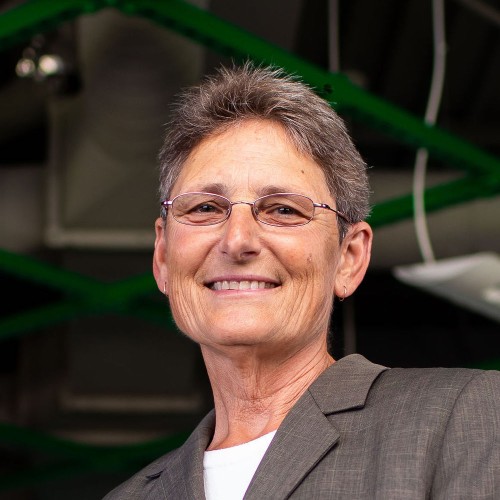The InVisionary
The employee cried when they told me they were leaving. They’ve been a direct support professional, for the same person with intellectual disability/autism for 15 years. This is not just a job. It’s a relationship, and they love the person they support. They are leaving just because they can’t make enough money to support themselves, and that’s painful.
I know hundreds of direct support professionals in Pennsylvania who have left their jobs because they can’t afford to live on their pay any longer. Almost every DSP I know has more than one job. A single person struggles to live on a DSP’s wage. It is virtually impossible for a single parent, a parent whose child or partner has a disability, or a person who supports an elderly parent.
Now we have urgent DSP vacancies. We don’t have enough to serve all the community that needs them. Our community-based services are in an historic crisis.
People with Intellectual Disability/Autism rely on DSPs for their very lives. Yet these dedicated professionals undergo incredible hardships in order to make the lives of persons with disability better.
In 1978, I was hired as a DSP. We earned slightly less than teachers and counselors, but that’s who providers competed with for DSP staff. Today, providers compete with retail, fast-food restaurants and convenience stores for staff. And we actually can’t even compete with them. Meanwhile, DSPs are responsible for making sure other human beings are alive, happy, healthy and safe.
Every single day, we have to ask DSPs to do more for less. It’s horrible to ask someone to stay an extra eight to 24 hours because there’s no one to replace them — to take time from their own family so the person they serve can have consistency in their lives. It’s bad to have to continue driving a decrepit, unreliable old car because they don’t earn enough to buy a better one.
Imagine what it means for people with ID/A to lose a support person, who has had to leave the job to make enough money just to get by. Imagine having someone leave your life after years of friendship, physical and emotional support, playing and working and growing together.
That’s what it’s like for the people DSPs support. They’re crushed. They’re scared. They don’t know who’s going to be there for them. They’ve developed trusting relationships for years, even decades. Now they don’t know who they can trust.
I know this from my work directing InVision Human Services. Every person we support has been through unimaginable trauma. Every person they allow into their lives has to prove themselves trustworthy. It will take months or even years to begin building trust with someone new. We’re talking about people’s lives.
Most of us do not develop trust in a work or personal relationship quickly. And these people are especially vulnerable, so they are often consumed with grief, fear, anxiety. It’s not a matter of, “Oh, they’re just getting a new person to help them cook and clean.” It’s like being the person left behind after an unwanted breakup.
These people talk about what’s happening with their DSPs. They talk about not knowing who’s coming, having new people in their homes. Some speak of fear. Others communicate fear and grief through behavior, which can become unmanageable for them.
One of my biggest fears is for the people we support who rely on aging parents. When their parents die, the DSP is all they have left. If they can’t stay in their home, their case manager will look for anything and anywhere that can serve them, whether that includes their happiness and security or not. How many examples must we give you of the people who would be harmed?
Pennsylvania’s ID/A service providers are calling on state policymakers to add $65 million (to be matched by federal funds) to the amount Gov. Tom Wolf has proposed for community direct support professional wages in the 2022-2023 state budget.
We are asking for equal pay for equal work. The Commonwealth pays its state-funded DSPs about 30% more than it grants for community-based DSPs. We are in a time of budget reserves and increased state revenues. The Commonwealth must help community providers increase DSP wage rates. If it doesn’t, many people in great need will have no one to help them.
I know hundreds of direct support professionals in Pennsylvania who have left their jobs because they can’t afford to live on their pay any longer. Almost every DSP I know has more than one job. A single person struggles to live on a DSP’s wage. It is virtually impossible for a single parent, a parent whose child or partner has a disability, or a person who supports an elderly parent.
Now we have urgent DSP vacancies. We don’t have enough to serve all the community that needs them. Our community-based services are in an historic crisis.
People with Intellectual Disability/Autism rely on DSPs for their very lives. Yet these dedicated professionals undergo incredible hardships in order to make the lives of persons with disability better.
In 1978, I was hired as a DSP. We earned slightly less than teachers and counselors, but that’s who providers competed with for DSP staff. Today, providers compete with retail, fast-food restaurants and convenience stores for staff. And we actually can’t even compete with them. Meanwhile, DSPs are responsible for making sure other human beings are alive, happy, healthy and safe.
Every single day, we have to ask DSPs to do more for less. It’s horrible to ask someone to stay an extra eight to 24 hours because there’s no one to replace them — to take time from their own family so the person they serve can have consistency in their lives. It’s bad to have to continue driving a decrepit, unreliable old car because they don’t earn enough to buy a better one.
Imagine what it means for people with ID/A to lose a support person, who has had to leave the job to make enough money just to get by. Imagine having someone leave your life after years of friendship, physical and emotional support, playing and working and growing together.
That’s what it’s like for the people DSPs support. They’re crushed. They’re scared. They don’t know who’s going to be there for them. They’ve developed trusting relationships for years, even decades. Now they don’t know who they can trust.
I know this from my work directing InVision Human Services. Every person we support has been through unimaginable trauma. Every person they allow into their lives has to prove themselves trustworthy. It will take months or even years to begin building trust with someone new. We’re talking about people’s lives.
Most of us do not develop trust in a work or personal relationship quickly. And these people are especially vulnerable, so they are often consumed with grief, fear, anxiety. It’s not a matter of, “Oh, they’re just getting a new person to help them cook and clean.” It’s like being the person left behind after an unwanted breakup.
These people talk about what’s happening with their DSPs. They talk about not knowing who’s coming, having new people in their homes. Some speak of fear. Others communicate fear and grief through behavior, which can become unmanageable for them.
One of my biggest fears is for the people we support who rely on aging parents. When their parents die, the DSP is all they have left. If they can’t stay in their home, their case manager will look for anything and anywhere that can serve them, whether that includes their happiness and security or not. How many examples must we give you of the people who would be harmed?
Pennsylvania’s ID/A service providers are calling on state policymakers to add $65 million (to be matched by federal funds) to the amount Gov. Tom Wolf has proposed for community direct support professional wages in the 2022-2023 state budget.
We are asking for equal pay for equal work. The Commonwealth pays its state-funded DSPs about 30% more than it grants for community-based DSPs. We are in a time of budget reserves and increased state revenues. The Commonwealth must help community providers increase DSP wage rates. If it doesn’t, many people in great need will have no one to help them.
Previous Post
February 10, 2022





Comments (0)